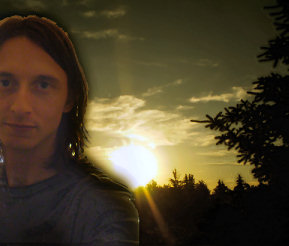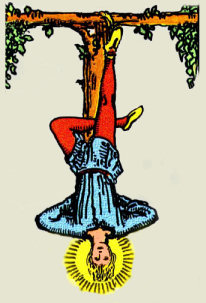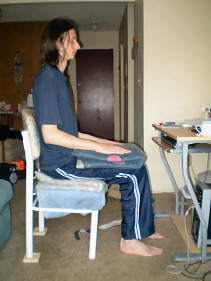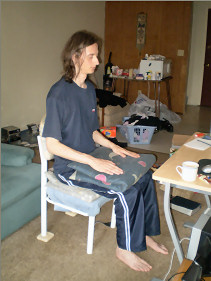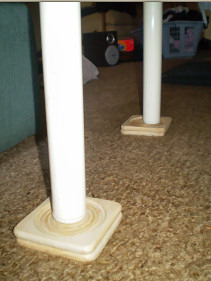Part one of a creation myth belonging to the fantasy world of Cortexia. Written and created by Mahud. Although this myth is Therazian, it has it’s origins in the mythical lore of the Nehar-Shahar. It is believed that this myth was transmitted to the Therasians via the Island of Moffia, who, according to legend, learned the creation story from Gavroc, the first of the Nehar-Khan. The Moffia, however, tell the story a little differently.
One night, the High Goddess Magnar told her husband Gnarma that she wished to create something new. A world full of living creatures, that could enjoy all the wonderful things that they themselves enjoyed. Magnar, thought this was a good idea, but suggested that she should ask the artisan Sun to create it for her, because she had no experience in these matters. Magnar objected, because she was every bit as skilled as Sun. She herself had created many of the wonderful lands in the realm of sky. “That is so,” replied Gnarma, “you create it then, but you have never created a living being, only I can do that.” Again Magnar objected, “I have created my son Veertepo, and he was born long before we first joined together in love.”
“Then let him be ruler of your new world then,” said Gnarma, “but I will create life!” Magnar liked the idea of her son as king of her new world, and so she agreed.
Gnarma had no intention of letting his wife create a new world, nor allow her son Veertepo to be king. Although Veertepo, with his blue eyes and golden hair was as handsome as his mother was beautiful, he was not yet wise enough to be a King. Also there were rumours that when Magnar first gave birth to her child he was ugly and covered in thick red hair from head to foot. To cure her child of his ugliness, she had Otu, the daughter of Sun, create a potion, and bathed the new born child in her gigantic cauldron until he was transformed. “How can I allow my wife to create such monstrous beings,” Gnarma thought!
Later, as the Goddess slept, Gnarma slipped quietly out of their bed, put on his dark blue tunic, picked up his silver staff, and went to find Sun. Sun’s hut was difficult to find, but with the light of the Silver staff to guide him, Gnarma eventually found himself standing before the door of Sun’s modest dwelling. He knocked three times with his staff before Otu finally answered. “Father is asleep, my lord,” she said, “I hope all is well with both you and the lady?” Otu invited Him in, and went to tell her father they had a visitor.
After Gnarma had told Sun everything, he agreed to help create the new world that very night as the Goddess slept. “In the morning, I will Kill Veertepo, take Magnar’s cauldron, and use it to create living beings, ” Gnarma said. Sun was not entirely happy with this arrangement. He loved the Goddess greatly and Veertepo was like a son to him, but he could not go against the wishes of the High God. He himself had fashioned the great cauldron and gave it to the queen, as a token of his affection. Sun whispered to his daughter to go swiftly and wake the Goddess up, before the situation got out of hand.
Otu soon found her way to the palace of sky. She crept through the window of the royal chamber and lightly tugged on the Great Goddess’s gown of night. “Wake up my lady, your husband has betrayed you.”
Magnar screamed and was about to fly out of the window and put an end to her husband, when Otu, afraid that Magnar might kill her father as well, grasped her lady by the ankles and said, “Have mercy my lady, I have a plan that will both save your child and put an end to your husband’s wickedness for ever!”
“Take this black stone and hang it around your son’s neck. It will act as a talisman against this deadly poison that Veertepo must drink if he is to stay alive. When my father has created the new world, your husband will return, kill Veertepo and claim your cauldron as his own. When Gnarma sends for your boy, I believe he will crush his head as he kisses his royal thigh. In that moment Veertepo must bite deep into his stepfather’s thigh. The poison will not be enough to kill a high god, but he will be paralyzed with pain, and yours to control as you wish.”
Magnar was pleased with this plan, and promised Otu that she and Veertepo would rule over the new world together as husband and wife. The Goddess went back to sleep and Otu smiled.
Sun was a skilled craftsman, and soon enough, the new world was ready to be placed in the furnace. Otu was still not back, and so he requested that he and Gnarma take a break. The High god had grown suspicious because of Otu’s absence, and refused Sun’s request until the new world was properly forged. When the work was complete Gnarma carried it back to his palace. It was still night, and so he decided to steal the cauldron first and begin his work, and kill Veertepo first thing in the morning.
with great difficulty Gnarma carried the cauldron upon his back into the royal throne room. He gathered together the secret ingredients according to the recipe of life and cooked them in the bubbling cauldron. Soon the smell reached the nostrils of the Goddess and she sent Otu to wake Veertepo. Otu told Veertepo what he must do to stay alive, and as daylight approached she returned to her father’s dwelling. Veertepo hung the black talisman around his neck and drank the poison, just in time to hear his stepfather summon him.
As Veertepo entered the throne room he saw his mother’s cauldron gently simmering. As he passed by he glanced inside and saw what appeared to be a god and a goddess in a beautiful garden, surrounded by a multitude of living creatures. He knelt down before his stepfather’s throne and went to kiss his thigh and bit down hard until he could taste the bone. Magnar cried out, “Scorpion!”, tossing Veertepo into the cauldron, before the paralyzing poison had it’s effect.
Veertepo entered the new world not as king, but rather as the yellow scorpion, that would become known among the tribes as the most deadly and despised of creatures, identified by a black mark on its belly.
To be continued…
